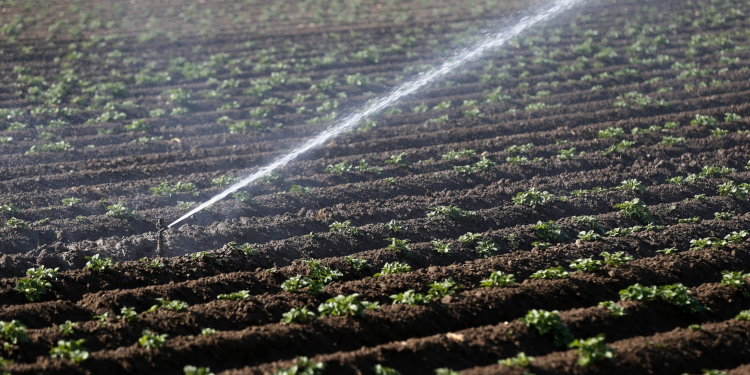More drought and heat will require more and more irrigation in the future. In Germany, more than 2 million hectares of arable land could also be irrigated, with around 12 million hectares of arable land. Then the usage conflicts increase.
The past hot and dry summers have also sparked discussions in this country about possible conflicts over the use of water resources. Currently, around 1.3 percent of the available water in Germany is used to irrigate agricultural land.
Around 16.6 million water is used for agriculture, 71 percent of it as arable land and 28 percent as permanent grassland. In Germany, more than 2 million hectares of arable land could also be irrigated . This is the conclusion reached by the authors of a study that appeared in the specialist journal ‘ PNAS ‘ and deals with sustainable irrigation in climates 3 degrees warmer.
Irrigation in agriculture is still comparatively expensive
After all, irrigation is relatively expensive. Instead, many growers accept the loss of yield in dry years. Or they grow crops on endangered areas that are harvested early and are therefore less affected. It will soon be seen whether this will also work in the future.
For this reason, irrigation is currently not very economically viable for many crops in Germany. So far, primarily vegetables, fruit and wine have been irrigated.
Competition for water from other branches of industry
Falling groundwater levels or low levels in rivers cause more and more problems in years of drought . But they should always be viewed regionally. In several federal states, such as Lower Saxony, there are strict guidelines on how much water can be pumped for irrigation.
However, these quantities are often no longer sufficient today. Sectors that could quickly be affected by increased water abstraction from agriculture are, for example
- Electricity generation, for example, when cooling water withdrawals are no longer allowed if the water temperatures in the rivers are too high,
- Inland navigation because the water level is too low.

more on the subject:
Create ponds and lakes, build reservoirs and retention basins
In principle, it is questionable, according to a specialist, whether many small storage tanks are really easier to build and maintain than some large reservoirs. In Germany, water for irrigation is mainly taken from the groundwater.
However, withdrawals in summer no longer compensate for new groundwater formation in winter. Germany still has a relatively balanced balance sheet for food. “The net import based on the kcal energy requirement per capita” is “close to zero”. According to the study, there are only a few net exporters worldwide, such as Australia, the USA, Canada, Brazil, Argentina, Kazakhstan and France.








